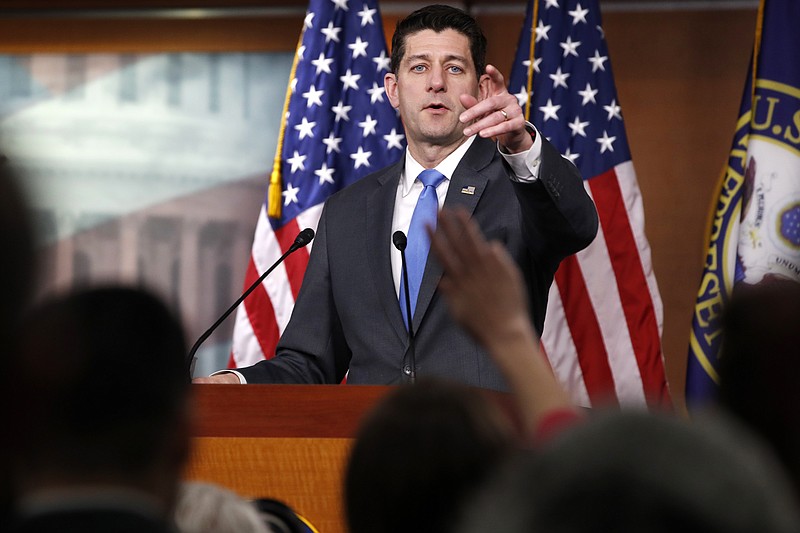An obscure congressional rule soon could force the residency issue of younger illegal immigrants - those in the Deferred Action for Childhood Arrivals (DACA) program - back on the table, the place where Republicans least want it.
If enough House members support a discharge petition to force a vote on four competing immigration bills - and they're getting close - the issue will be front and center again, just in time for midterm election season.
We're here because Democrats rejected a gift-wrapped package from President Donald Trump in January that would have given them what they wanted - and more - but they would have had to accept reasonable future immigration limits. The president's offer would have included a pathway to citizenship for more than 700,000 people who signed up for the Obama-era DACA program and an additional 1.1 million illegal immigrants who could have qualified for the program but didn't.
By the time negotiations fell apart in March as the overall government spending bill was being finalized, the terms weren't nearly as generous.
But the rarely used Queen of the Hill rule, if the discharge petition is signed by a majority of House members, would allow the four bills to be brought to the floor and voted on.
The bills range from two that would grant conditional permanent resident status to DACA recipients, to one that grants three-year renewable legal status to DACA recipients and has future immigration limits, to an undetermined one that House leadership could offer.
We believe Trump's 2018 opening bid comes closest to what the majority of the country could have accepted and that the interjection of immigration in the middle of other issues will only muddy the waters, but we understand those who seek straight up-or-down votes on the range of immigration bills.
After all, definitive votes, one way or the other, send a message - we don't want this or that. Close votes say a little negotiation might do the trick. But that doesn't take into account the current hyperpartisanship of the parties, especially Democrats, whose hatred of the president because of his 2016 upset win has blinded them from working with Republicans for the American people.
Speaker of the House Paul Ryan, R-Wis., addressed the issue the last two days, saying the growing effort would be an exercise in futility because none of the bills was likely to pass. He and others in Congress are also aware the issue is likely to come before the Supreme Court in the fall.
Nevertheless, since Trump rescinded the DACA program - a decision being challenged in court - the younger immigrants, now mostly adults, have grown nervous about their status.
Immigration attorney Marty Lester told members of the Times Free Press editorial board earlier this week "it is vital that Congress do its job" on the issue since the DACA program is "on life support."
He said it makes sense for the U.S., from humanitarian and business points of view, to protect the young adults who are paying taxes, starting businesses and filling jobs in critical needs areas. The loss of such a group, he said, would be "in the tens of billions of dollars."
The Rev. Barry Kidwell, a minister at First-Centenary United Methodist Church whose work often takes him to the homeless and immigrant communities, said DACA recipients "have proven themselves to be pretty good citizens." Yet, long gone from their country of birth, they're "too American to fit in their [native] country but too Hispanic for this country."
Earlier this week, two additional Republicans added their name to the discharge petition, which is five shy of the number needed to force the votes (assuming all 193 Democrats vote for it).
Republicans in swing districts worry that legal Hispanic residents and others will hold it against them if there are no immigration votes, while some Republicans elsewhere worry that any support shown such efforts will bring them future opposition from the right.
According to backers of the unusual method of getting legislation to the House floor, only two days (June 25 and July 26) exist between now and Congress's long August recess when the discharge petition could be filed, if the proper number of signatures are obtained.
So, nothing is guaranteed, but it could make for an interesting early summer, especially if Trump gets involved and reminds Democrats what they could have had in January.
The GOP may be overly worried, though, forgetting that while a majority of Americans want a path to legalization for the younger immigrants, an even bigger majority want illegal immigration stopped and the border secured.
Time will tell.
